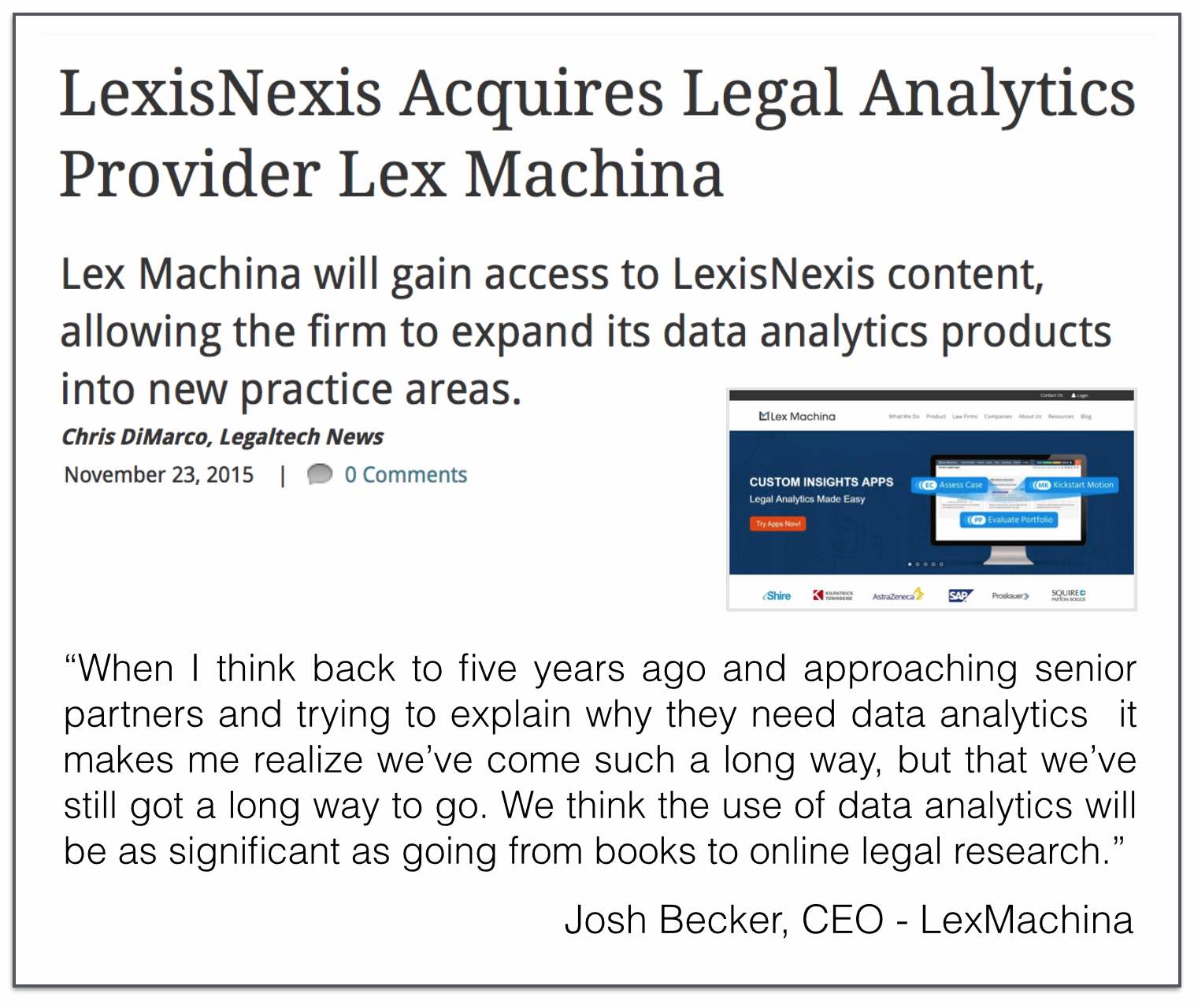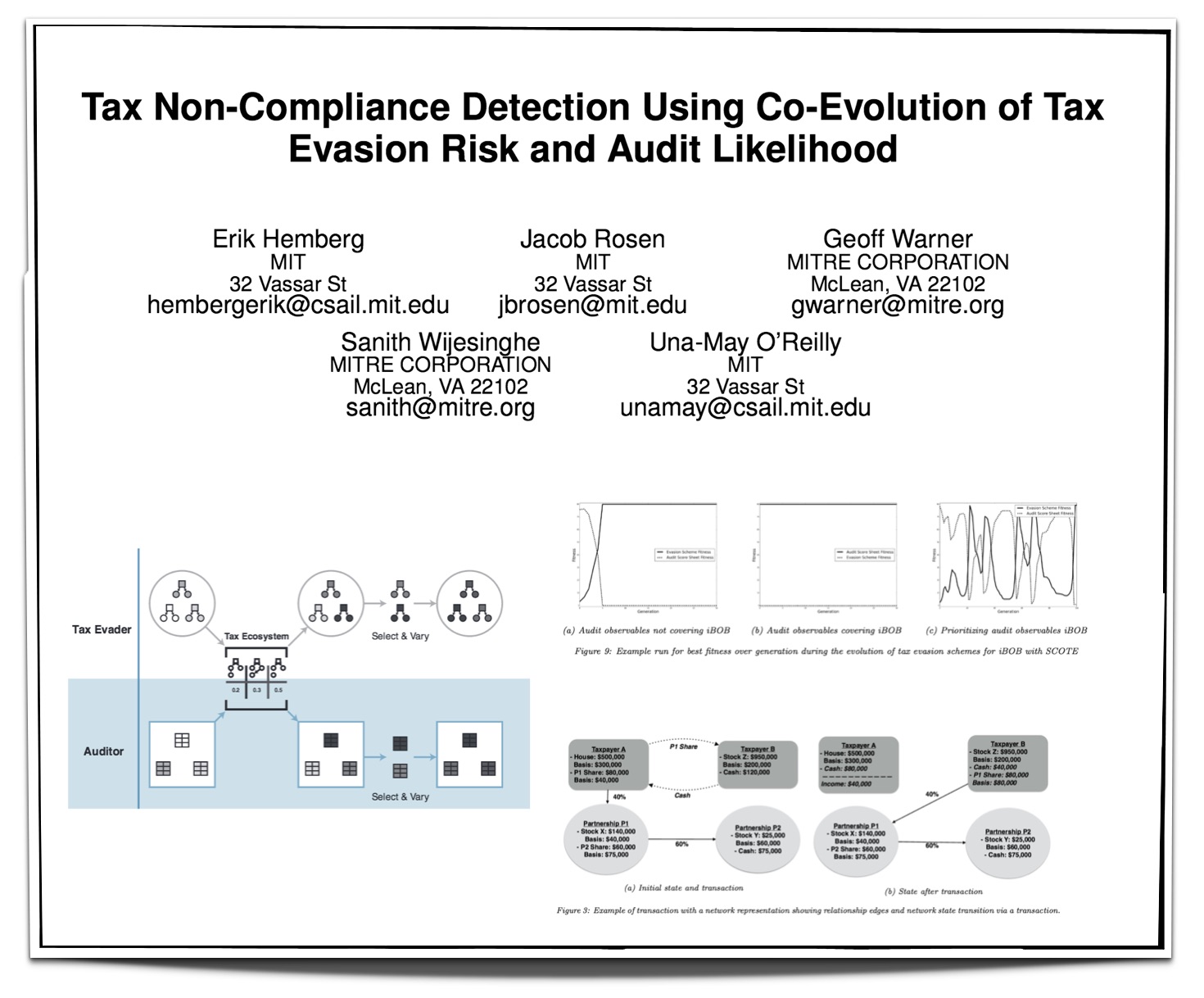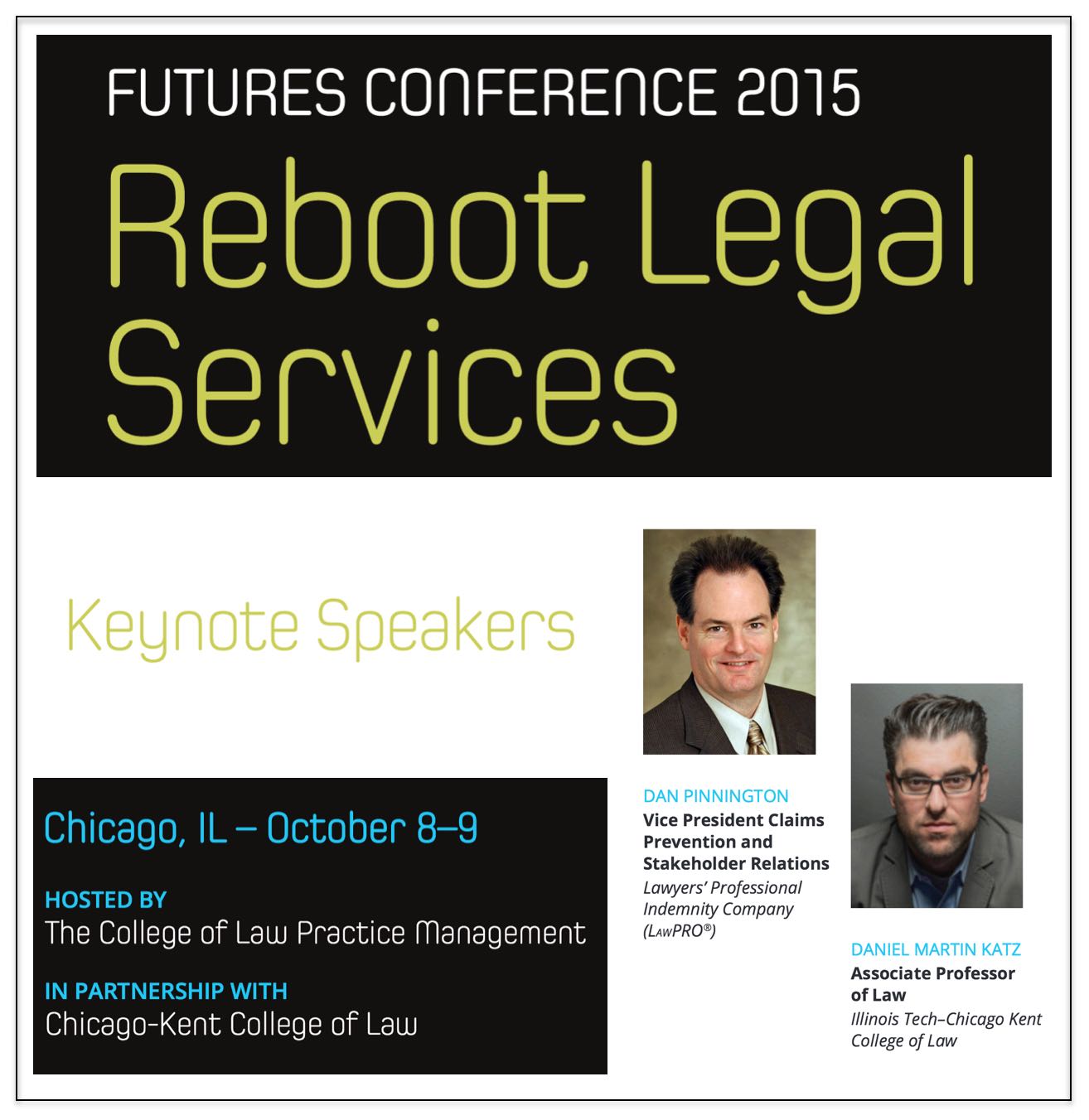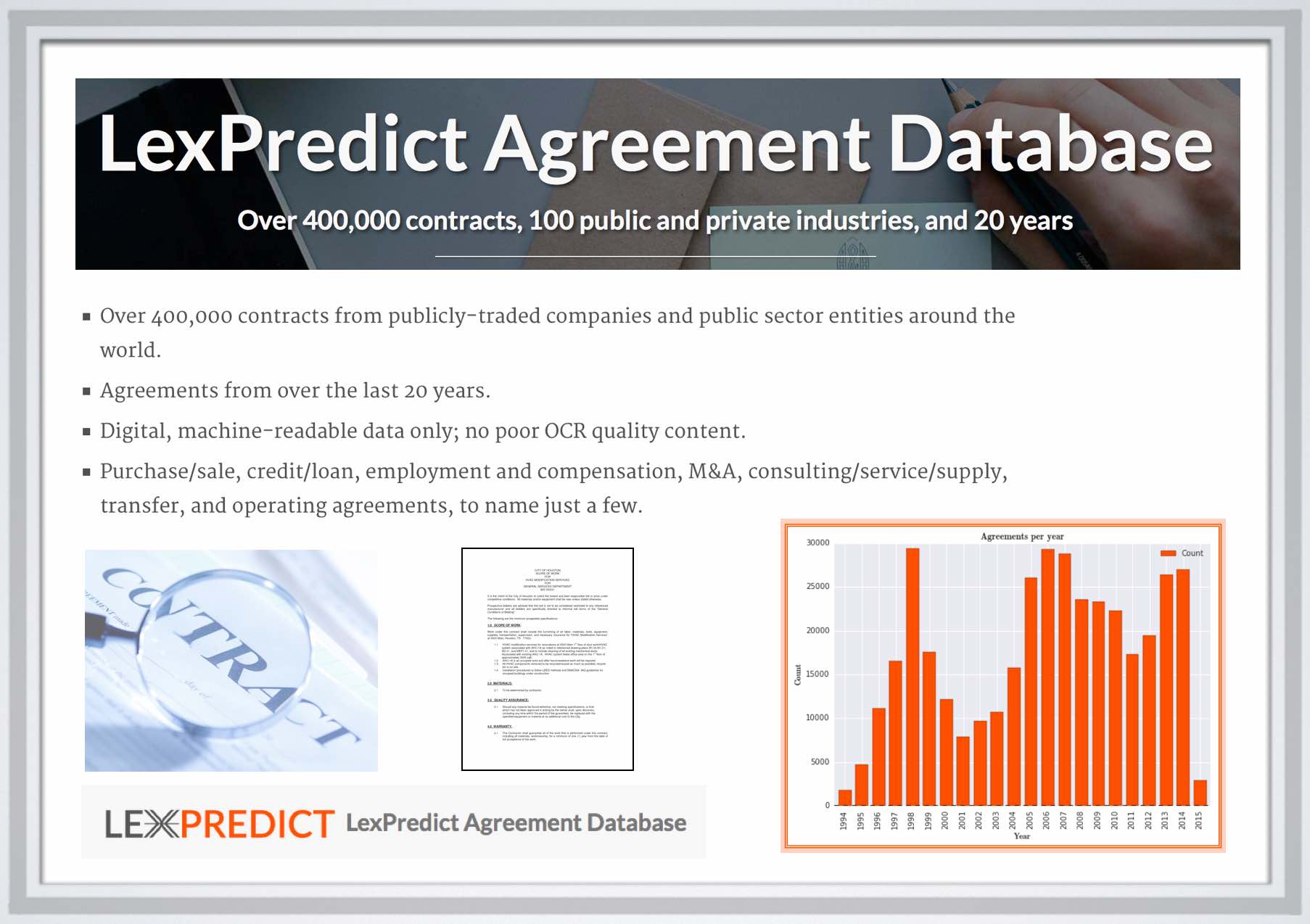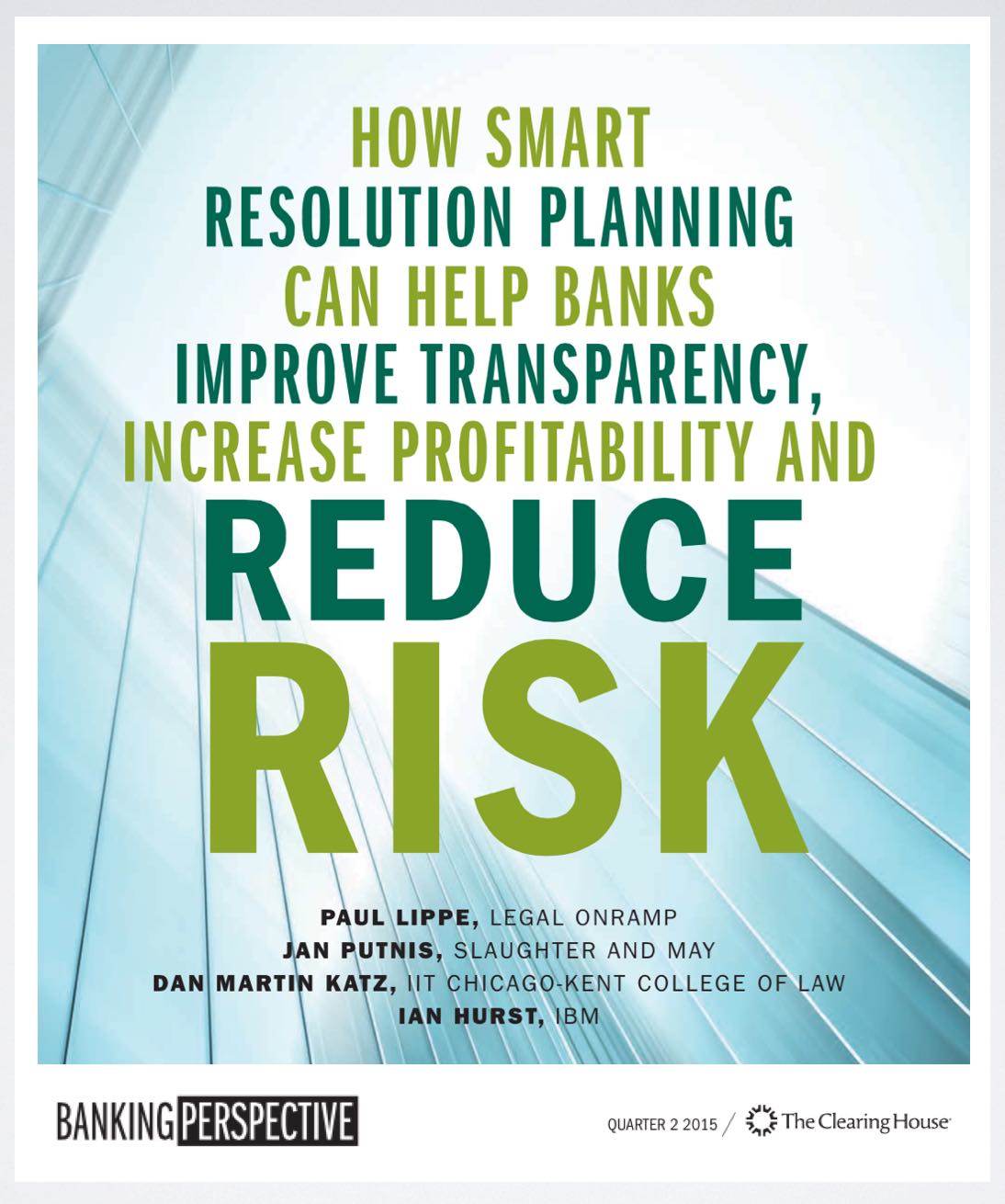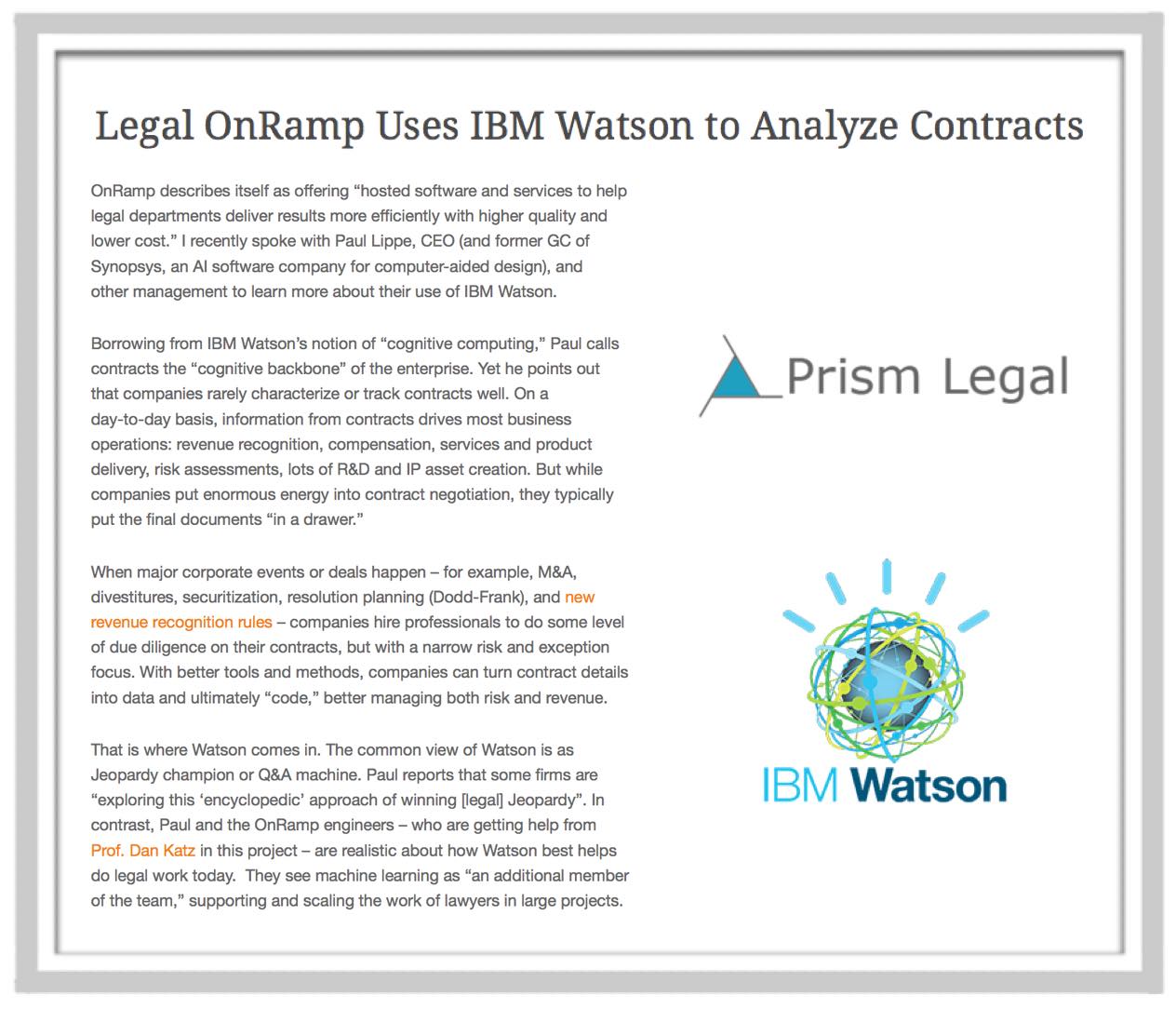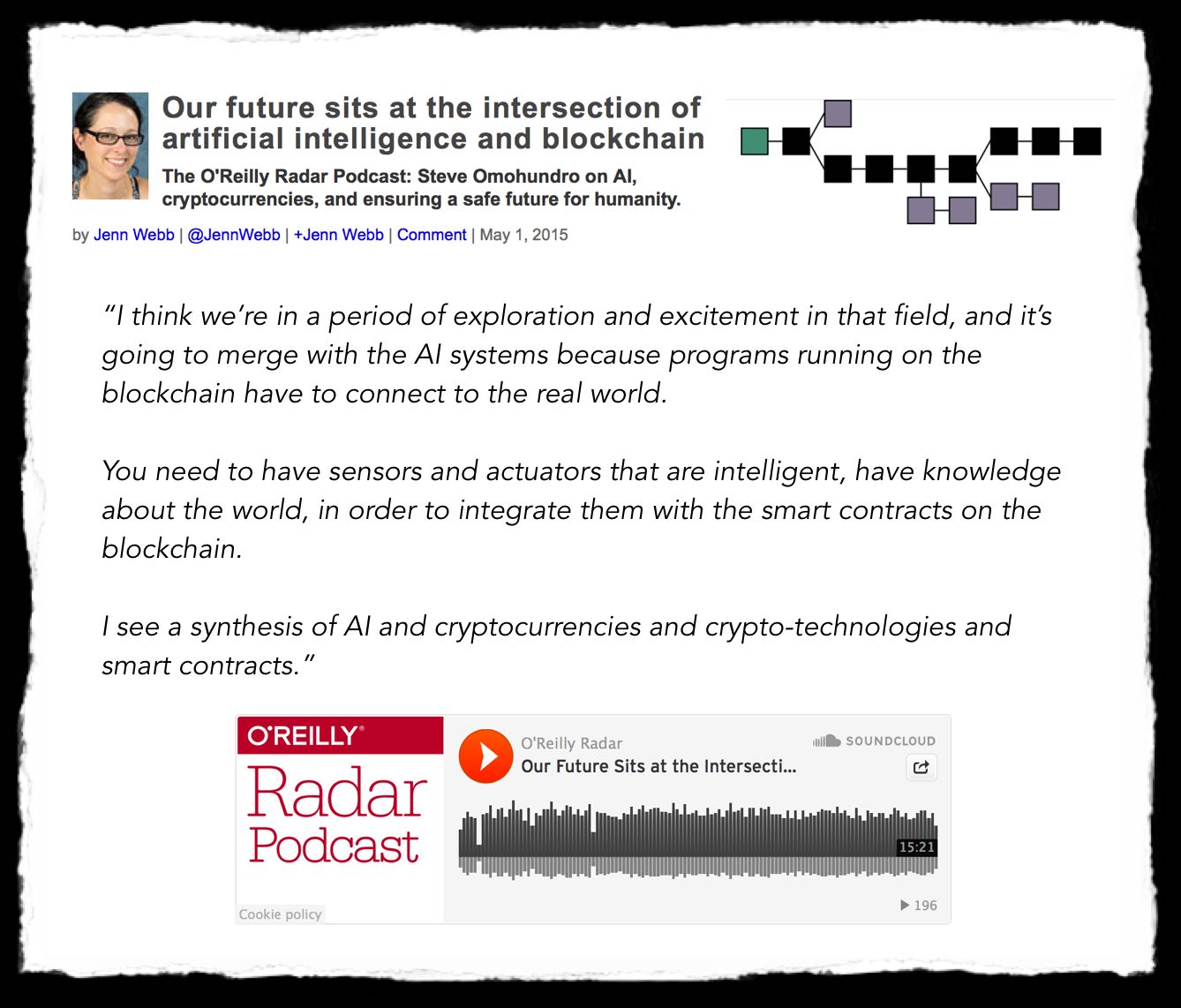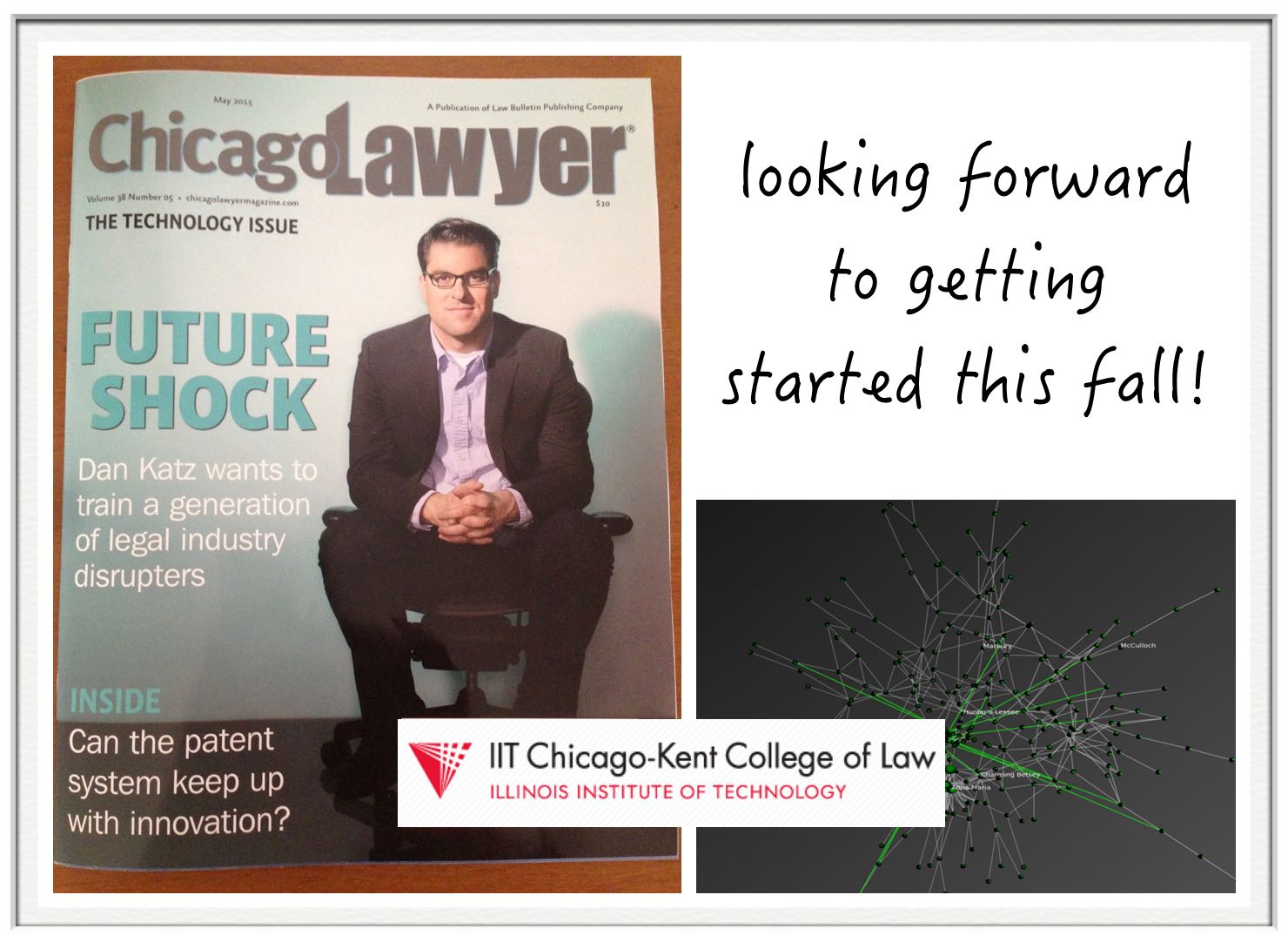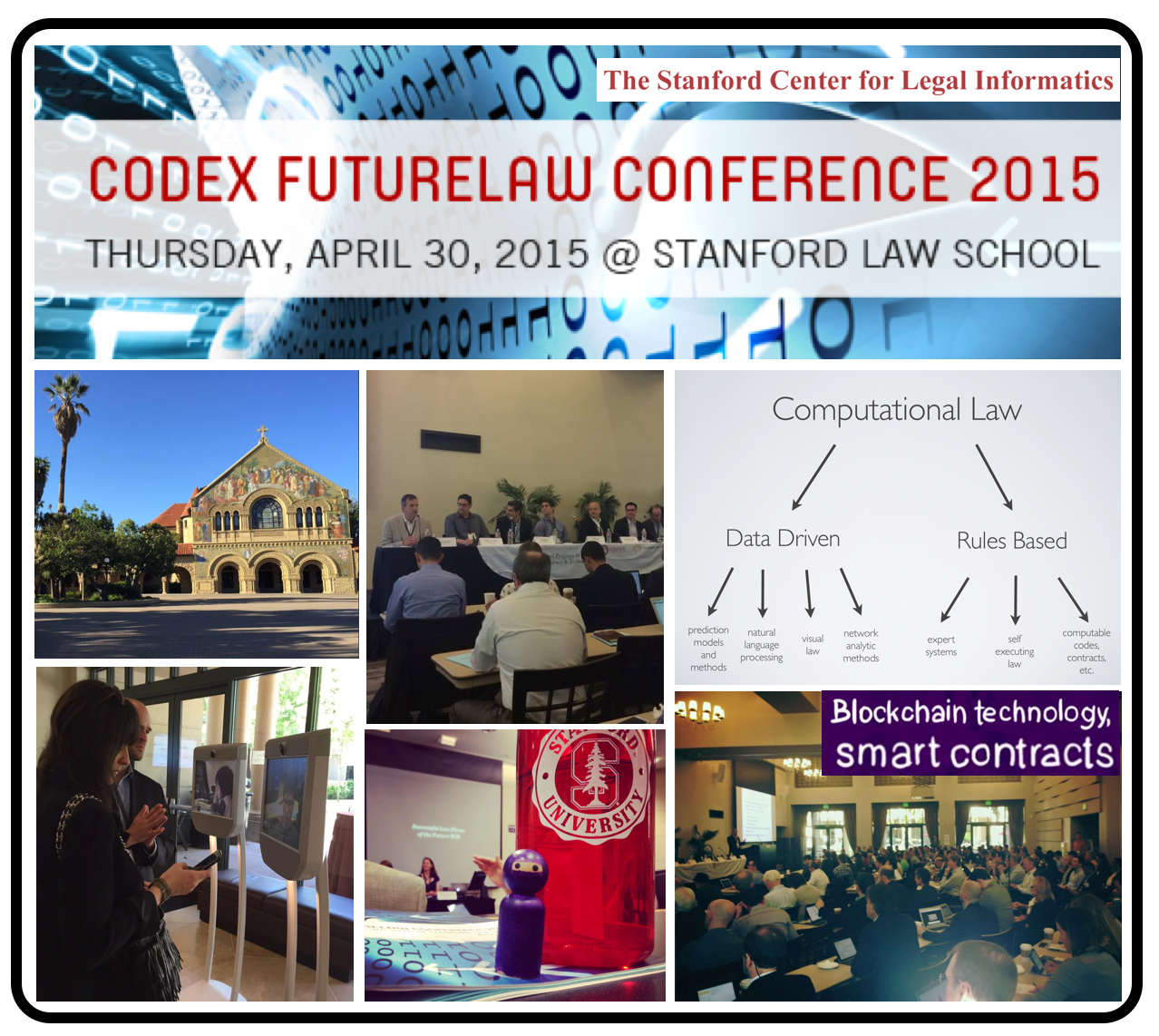Tag: computational legal studies
Law Firm COO & CFO Forum Pre-Conference Workshop on Big Data / Legal Analytics / Legal Informatics
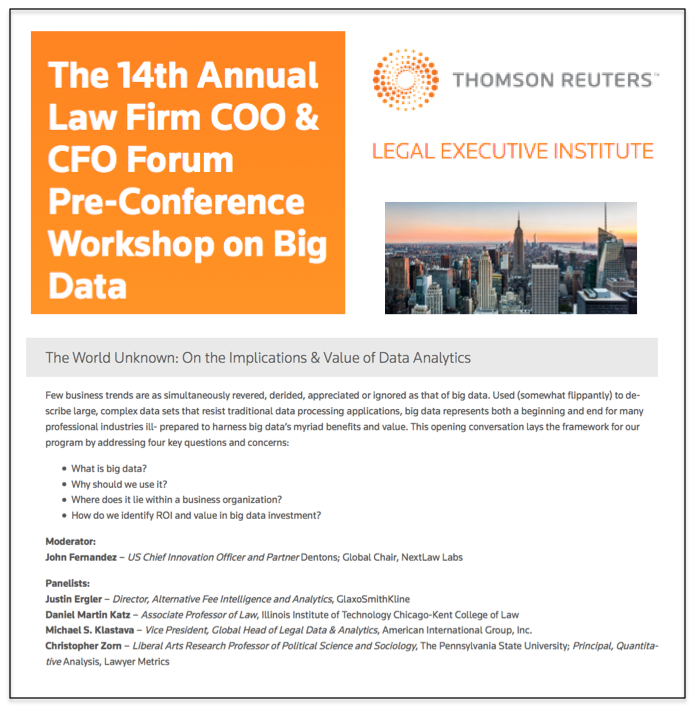 Yesterday I had the pleasure of participating in the Thomson Reuters Law Firm COO & CFO Forum Pre-Conference Workshop on Big Data. The half day workshop explored various way that law firms and outside counsel can use data to be better lawyers and run better businesses.
Yesterday I had the pleasure of participating in the Thomson Reuters Law Firm COO & CFO Forum Pre-Conference Workshop on Big Data. The half day workshop explored various way that law firms and outside counsel can use data to be better lawyers and run better businesses.
Here is the information for my panel (below) and the full program is located here.
Few business trends are as simultaneously revered, derided, appreciated or ignored as that of big data. Used (somewhat flippantly) to describe large, complex data sets that resist traditional data processing applications, big data represents both a beginning and end for many professional industries ill- prepared to harness big data’s myriad benefits and value. This opening conversation lays the framework for our program by addressing four key questions and concerns:
- What is big data?
- Why should we use it?
- Where does it lie within a business organization?
- How do we identify ROI and value in big data investment?
Moderator:
John Fernandez – US Chief Innovation Officer and Partner Dentons; Global Chair, NextLaw Labs
Panelists:
Justin Ergler – Director, Alternative Fee Intelligence and Analytics, GlaxoSmithKline
Daniel Martin Katz – Associate Professor of Law, Illinois Institute of Technology Chicago-Kent College of Law; Chief Strategy Officer, LexPredict
Michael S. Klastava – Vice President, Global Head of Legal Data & Analytics, American International Group, Inc.
Christopher Zorn – Liberal Arts Research Professor of Political Science and Sociology, The Pennsylvania State University; Principal, Quantitative Analysis, Lawyer Metrics
Teaching the Complex Systems Course @ University of Michigan ICPSR Summer Program in Quantitative Methods
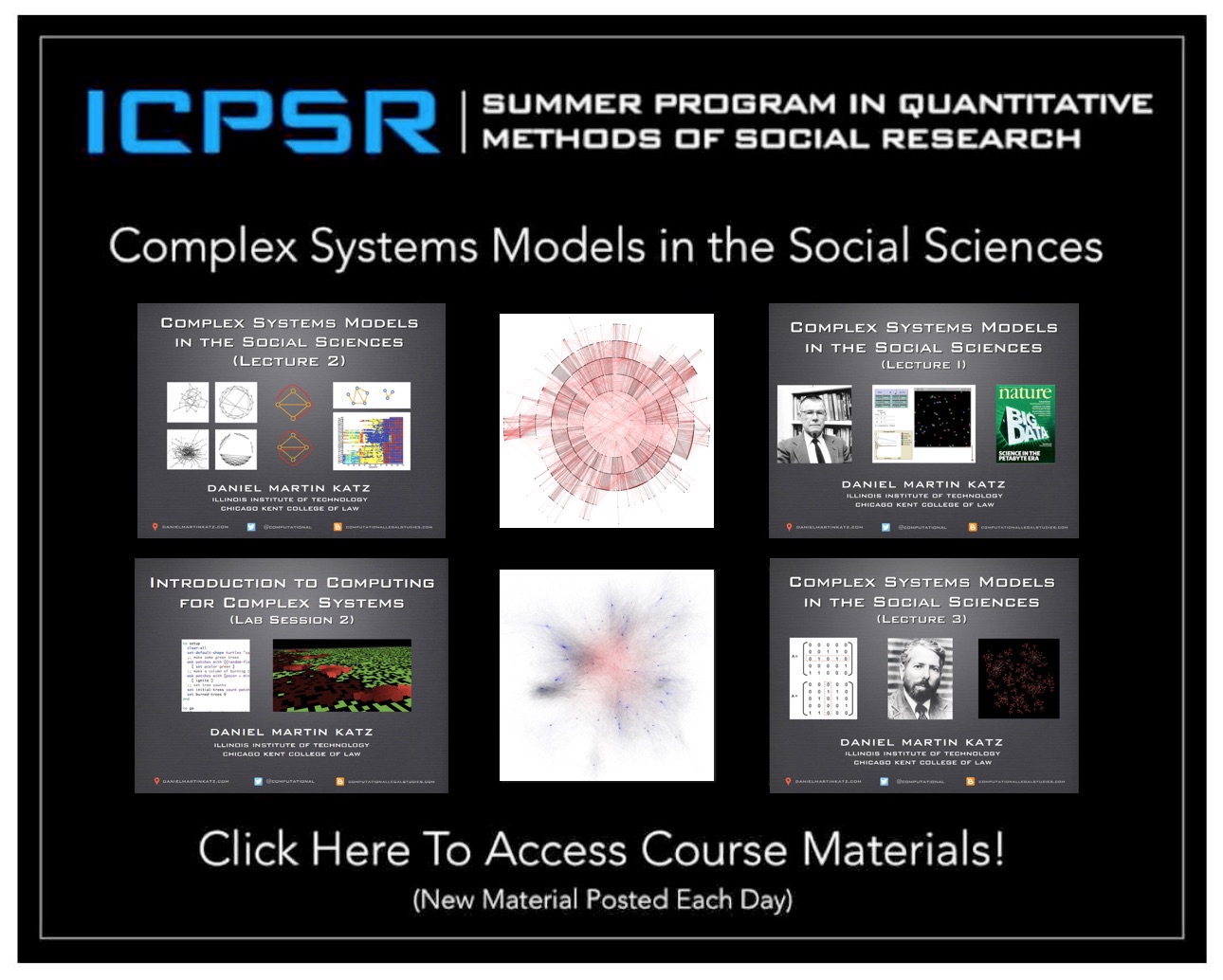 This upcoming week and next week I have the pleasure of teaching “Complex Systems Models in the Social Sciences” here at the University of Michigan ICPSR Summer Program in Quantitative Methods. The field of complex systems is very diverse and it is difficult to do complete justice to the range of scholarship conducted under this umbrella in a short survey course. However, we strive to cover the canonical topics such as computational game theory and computational modeling, network science, natural language processing, randomness vs. determinism, diffusion, cascades, emergence, empirical approaches to study complexity (including measurement), social epidemiology, non-linear dynamics, etc. Click here or on the image above to access my course materials!
This upcoming week and next week I have the pleasure of teaching “Complex Systems Models in the Social Sciences” here at the University of Michigan ICPSR Summer Program in Quantitative Methods. The field of complex systems is very diverse and it is difficult to do complete justice to the range of scholarship conducted under this umbrella in a short survey course. However, we strive to cover the canonical topics such as computational game theory and computational modeling, network science, natural language processing, randomness vs. determinism, diffusion, cascades, emergence, empirical approaches to study complexity (including measurement), social epidemiology, non-linear dynamics, etc. Click here or on the image above to access my course materials!
15th International Conference on Artificial Intelligence & Law — San Diego (Final Day for Priority Registration)
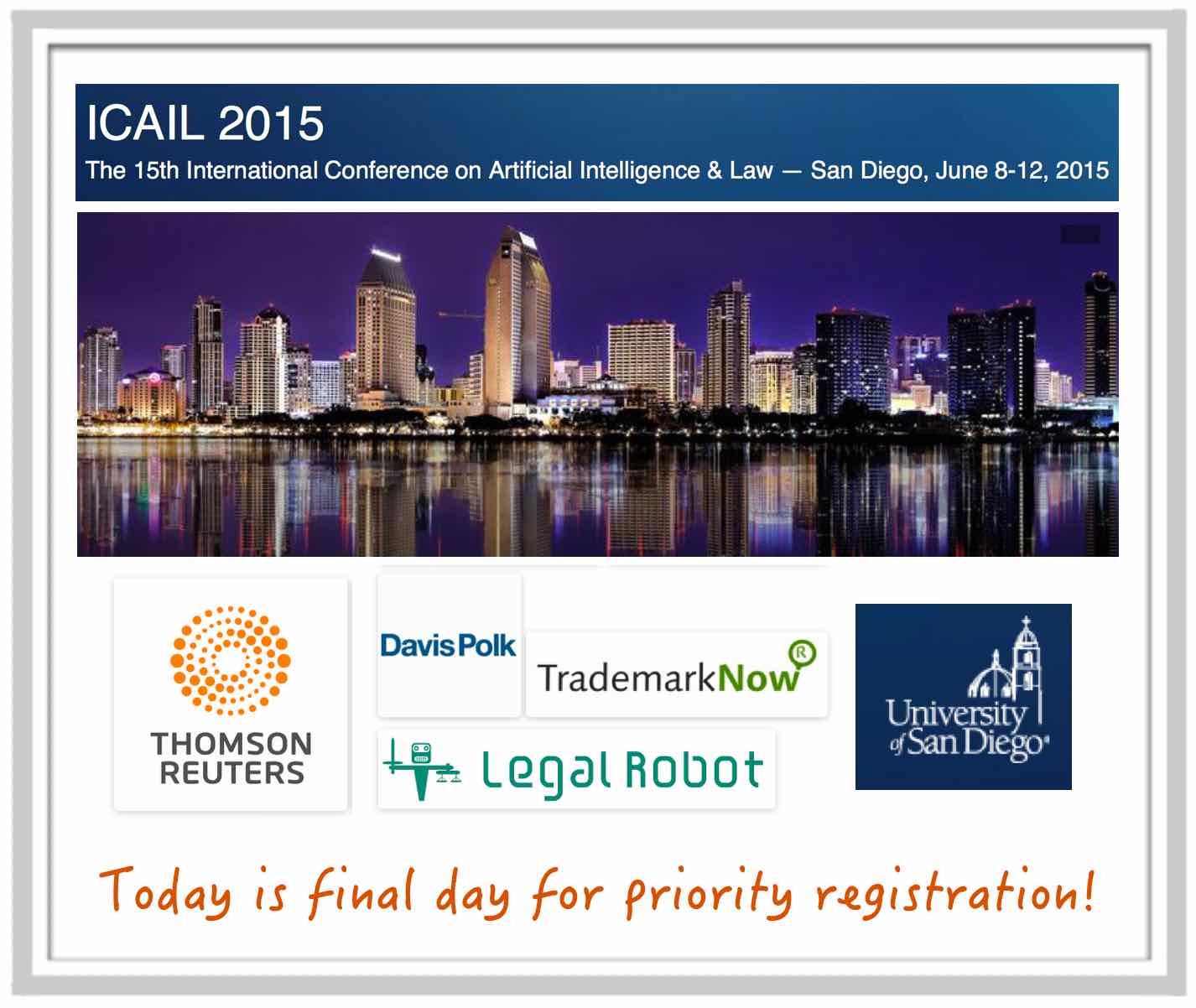 As a member of the local organizing committee, I just wanted to mention that today is the final day for priority registration for the International Conference on Artificial Intelligence & Law in San Diego.
As a member of the local organizing committee, I just wanted to mention that today is the final day for priority registration for the International Conference on Artificial Intelligence & Law in San Diego.
LexPredict Hackathon Challenge – Extracting Simple Contract Metadata
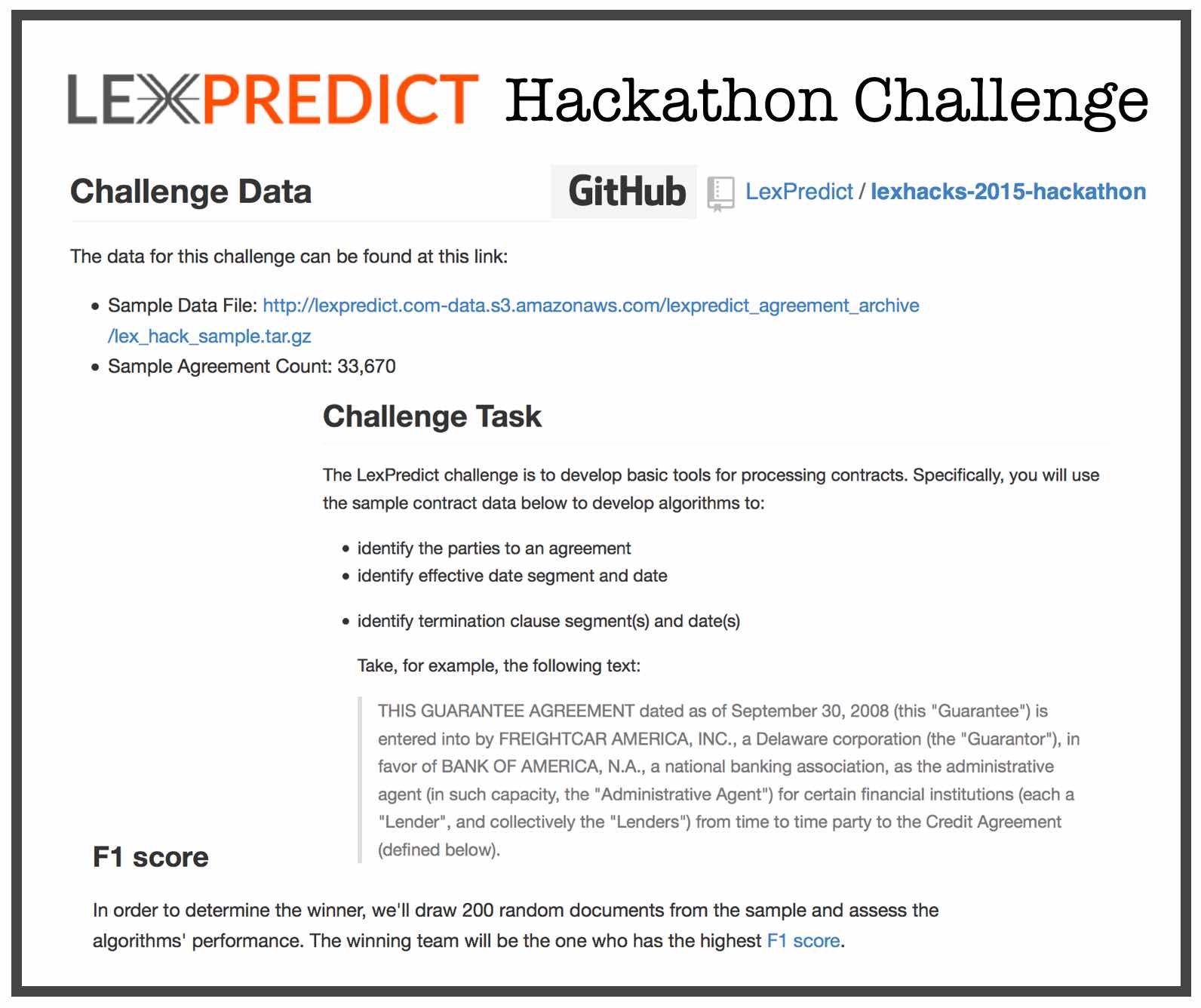 Beyond the specific prize attached to upcoming hackathon event, we welcome anyone who (for fun) would like to take a crack at this challenge.
Beyond the specific prize attached to upcoming hackathon event, we welcome anyone who (for fun) would like to take a crack at this challenge.
Email us directly (Daniel Martin Katz or Mike Bommarito) – if you would like to work on this challenge.
Our LexPredict Challenge is an opportunity to develop basic tools for processing contracts.
Specifically, you will use the sample contract data below to develop algorithms to:
(1) identify the parties to an agreement
(2) identify effective date segment and date
(3) identify termination clause segment(s) and date(s)
At LexPredict, we have built this simple (and other more complex) technology for use in commercial applications. This is an opportunity to use this challenge to produce open source content which we can be used by all (including in the Legal Analytics Course).

